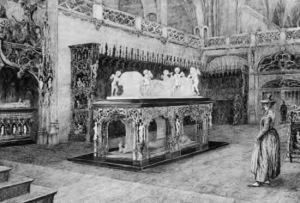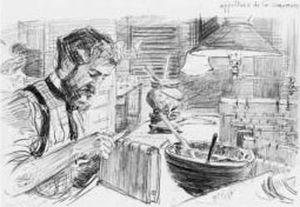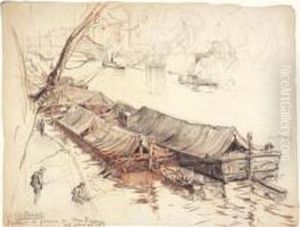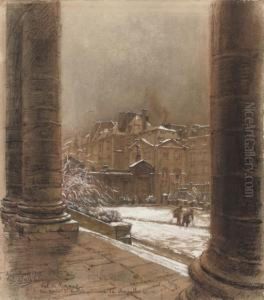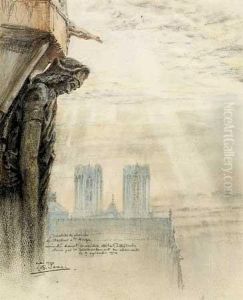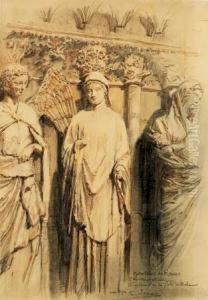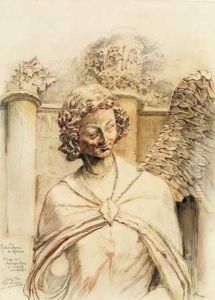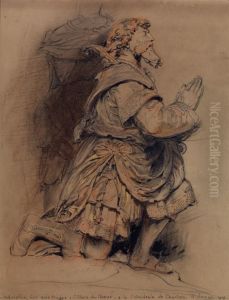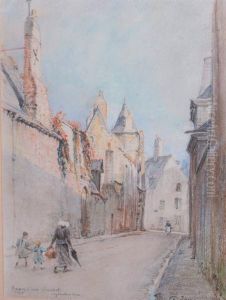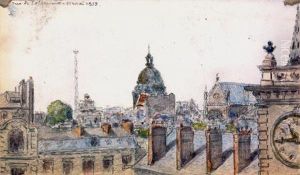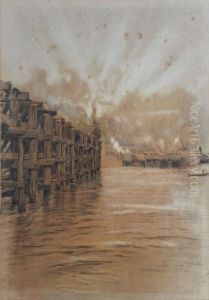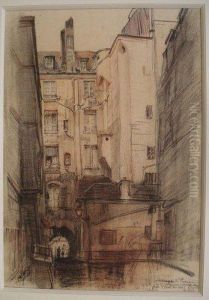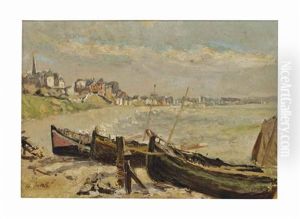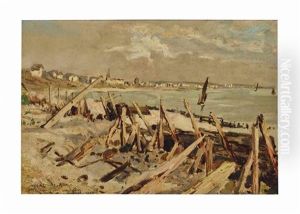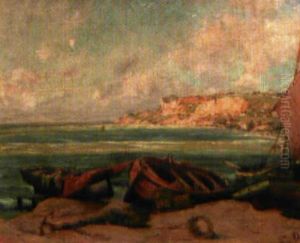Charles Jouas Paintings
Charles Jouas, a French artist known for his etchings and lithographs, was born on February 27, 1866, in Paris. He was a prominent figure in the early 20th-century French art scene, specializing in the depiction of urban landscapes and architectural subjects. Jouas developed an interest in art at an early age and pursued his passion by studying at the École des Beaux-Arts in Paris under the tutelage of Gustave Moreau, a significant symbolist painter of the time.
Jouas was not just limited to etching and lithography; he was also a skilled painter and illustrator. However, it was his mastery in printmaking that earned him a distinguished reputation. His works often featured Parisian scenes, capturing the essence of the city's streets, monuments, and the daily life of its inhabitants with a delicate and intricate style. His attention to detail and ability to convey atmosphere and light in his prints were highly admired.
Throughout his career, Charles Jouas exhibited his works at various salons and galleries, gaining widespread recognition and respect among his contemporaries. He was awarded the Legion of Honour, France's highest order of merit for military and civil merits, in 1912, which was a testament to his contribution to French art. Despite the changing art movements, Jouas remained dedicated to his signature style, which was rooted in realism and a love for his home city.
His works are today held in numerous public collections, including the Bibliothèque Nationale de France and the Musée Carnavalet in Paris. Jouas continued to work until his death in Paris on May 2, 1942, leaving behind a rich legacy of Parisian etchings that continue to be celebrated for their beauty and historical value.
